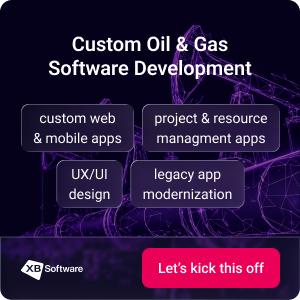Chevron Corporation and Shell plc have achieved a significant milestone with the launch of oil production from the Whale semi-submersible platform, located in the deep waters of the U.S. Gulf of Mexico. The Whale project is a joint venture between two of the world’s leading energy companies, marking a pivotal step in the ongoing development of deepwater resources and reinforcing the Gulf’s critical role in global energy supply.

This article delves into the key features of the Whale project, its strategic importance, and how it is setting a new standard for offshore oil production in terms of both innovation and sustainability.
Key Details of the Whale Project
The Whale platform is situated in the Alaminos Canyon Block 773, approximately 200 miles southwest of Houston, Texas. Positioned in over 8,600 feet of water, the platform is one of the deepest offshore projects in the region. Chevron U.S.A. Inc., a subsidiary of Chevron, holds a 40% working interest in the project, while Shell Offshore Inc., a subsidiary of Shell, holds the remaining 60% and serves as the operator.
The first phase of the Whale project includes the development of up to 15 wells. At peak production, the platform is expected to produce 100,000 barrels of oil equivalent per day. This makes it a significant contributor to the ongoing energy output from the Gulf of Mexico, a key region for U.S. oil and gas production.
Strategic Importance of the Whale Project
The Gulf of Mexico remains a vital region for both Chevron and Shell’s upstream operations. For Chevron, the Whale project is integral to its strategy of increasing production in the Gulf to achieve a target of 300,000 net barrels of oil equivalent per day by 2026. This aligns with the company’s broader focus on producing some of the world’s lowest-carbon oil and gas.
For Shell, operating the Whale platform strengthens its position as a leader in deepwater oil and gas production. Shell’s expertise in offshore exploration and production ensures that the Whale project is managed efficiently, safely, and with a strong commitment to environmental responsibility.
The Whale project is also a testament to the enduring importance of the Gulf of Mexico as a key energy-producing region. Despite the global push toward renewable energy, deepwater oil production continues to play a crucial role in meeting global energy demand, particularly as technological advancements make offshore projects more efficient and sustainable.
Innovative Design and Sustainability Features
One of the defining characteristics of the Whale project is its emphasis on innovation and sustainability. The platform incorporates state-of-the-art technology to optimize both production and environmental performance. Key features include:
- Energy-Efficient Gas Turbines: The platform is equipped with gas turbines and compression systems that help reduce emissions while maximizing energy efficiency.
- Simplified Design Model: The Whale platform follows a simplified design approach that reduces complexity, lowers operational costs, and improves financial returns.
These sustainability measures reflect both Chevron and Shell’s commitment to reducing the environmental impact of their operations. By leveraging advanced technologies, the companies aim to set a new benchmark for responsible energy production in deepwater environments.
The Broader Impact on the Gulf of Mexico
The Whale project highlights the ongoing potential of the Gulf of Mexico as a critical source of oil and gas for the United States and the global market. The region has long been a cornerstone of U.S. energy production, and the launch of the Whale platform reinforces its significance.
Moreover, the project demonstrates the value of collaboration between major energy companies. By pooling their resources and expertise, Chevron and Shell are unlocking new opportunities in the Gulf while prioritizing efficiency and sustainability. This collaborative approach is essential for addressing the challenges of offshore oil production, from managing complex operations to adhering to stringent environmental regulations.
Looking Ahead: A Bright Future for Deepwater Production
The successful launch of the Whale platform marks a new chapter in deepwater oil production in the Gulf of Mexico. As Chevron and Shell ramp up production, the project is expected to play a central role in meeting future energy demands while setting new standards for sustainability and operational efficiency.
With its innovative design and strategic importance, the Whale project underscores the continued relevance of the Gulf of Mexico in the global energy landscape. As both companies continue to invest in the region, the future of deepwater production looks promising, providing a reliable and responsible source of energy for years to come.






